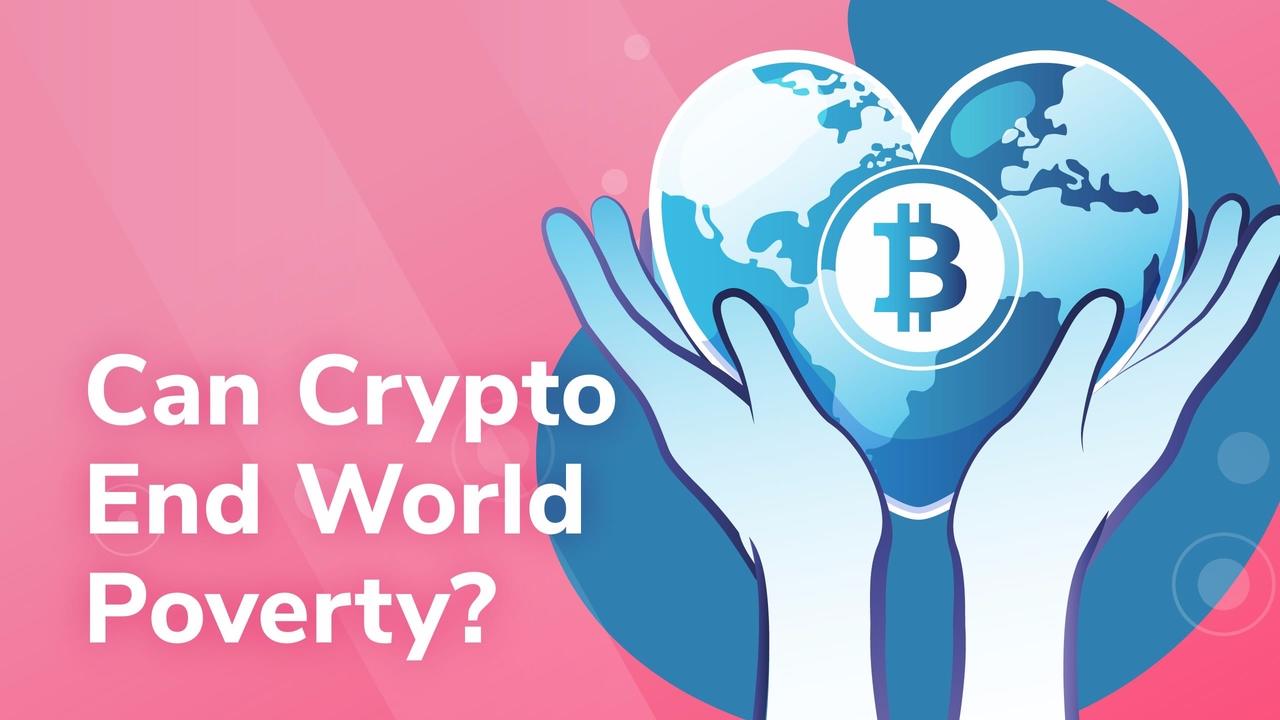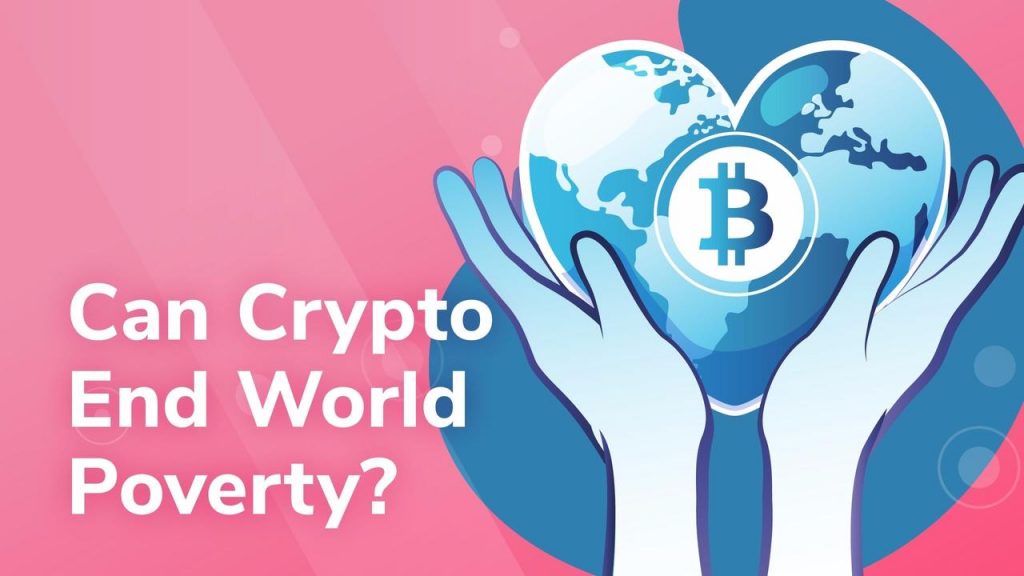
Global economic parity has been a hot subject for discussion during many years. With the rise of industry and technology, the rich have become insanely wealthy, while the wealth divide has never been bigger. Can crypto end world poverty? In this article, we’ll explore some of the fascinating ways that blockchain technology is being used to transform the lives of many people, while providing an even playing field for economic parity.
In the current economic state, following the onset of the COVID-19 coronavirus pandemic, many people are facing financial difficulties. Currency instability, capital controls, and an outdated cross-border payment system are incredibly difficult both for people and businesses across the world.
With wealth inequality growing at an alarming rate, can crypto end world poverty and provide a sustainable economy for struggling nations? In this article we’ll take a look at some of the ways that cryptocurrency can change the way we create and allocate value, exploring some of the fascinating use cases for cryptocurrencies that could put an end to economic disparity.
There is a common misconception that the most valuable use case for cryptocurrency is trading, and perhaps investing. This narrative has parallels to an antiquated perception of cryptocurrency as a whole, assuming that blockchain technology is limited to speculative market participation and tradable assets. The broader scope for non-volatile assets on the blockchain is largely overlooked, as is the wider potential for cryptocurrency to change how the global economic machine operates.
First and foremost, if you need a refresher on some of the revolutionary possibilities brought about by the advent of cryptocurrencies, be sure to enroll in Ivan on Tech Academy courses such as our crypto basics course or our blockchain and Bitcoin course.
The Unbanked
Approximately one-third of all adults globally remain unbanked. Though there have been instances of accelerated financial inclusion throughout many parts of the world, around 1.7 billion people are still without access to basic financial services.
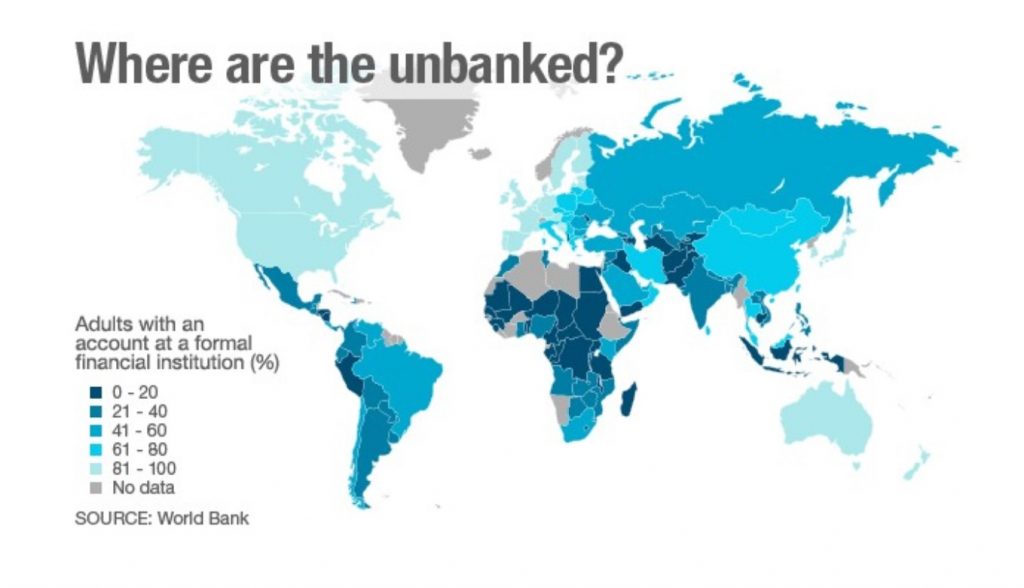
That being said, of those people, roughly two-thirds own a mobile phone that can provide access to a plethora of financial services and applications. Regardless of nationality, legal status, or documentation, decentralized finance and cryptocurrency is available to all.
There is a stark contrast between the financial services available to most people in western countries, and the third of the entire global population that is unable to generate or secure wealth. This is where cryptocurrency comes in.
Smaller businesses rely on fast, efficient and cost-effective payments, and when there is no trustworthy financial institution to facilitate this, progress and productivity are hindered.
Even if you have no official documentation or credit rating, you can take out loans and provide liquidity in decentralized finance. With the rise of blockchain credit and DeFi, banking services will soon be available to everyone. All you need is an internet connection.
Remittances
When making remittances using the “Society for Worldwide Interbank Financial Telecommunication” (SWIFT) payment network, users often incur outrageous fees. Transfers can take up to five business days to reach their destination, which is especially problematic when weekends and time differences between geographies are taken into consideration. If there are several intermediary banks involved in a transaction, this can result in further delays.
The result is a reduction in productivity and efficiency. The rate at which money is exchanged within an economy, known as the velocity of money, is a key metric for quantifying productivity and the rate at which money is transacted for goods and services. When this measurement is low, it often points toward an economic downturn.
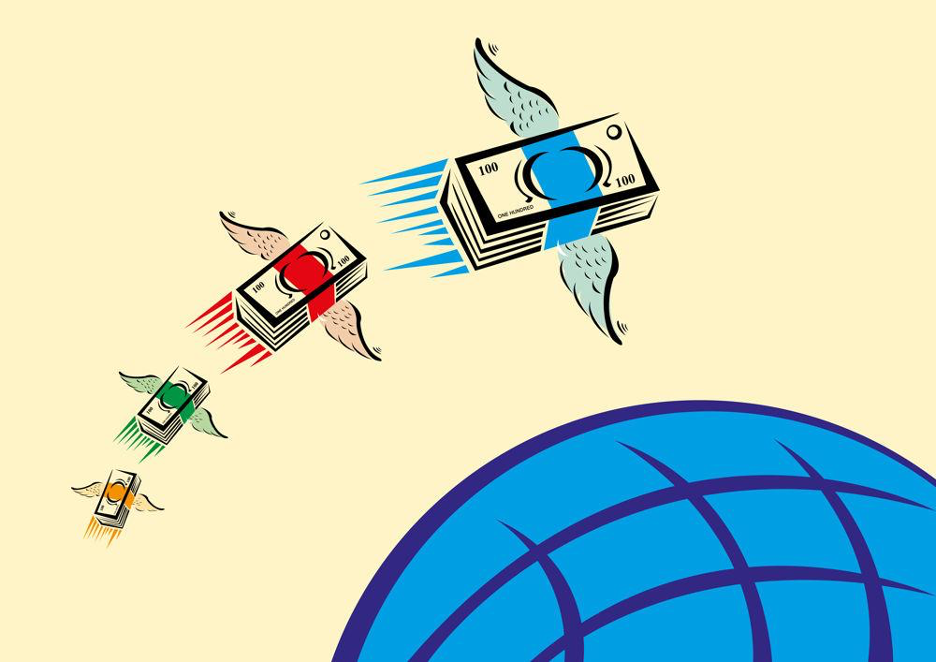
Cryptocurrencies allow for fast, efficient, and stable cross-border payments which are cost-effective and largely censorship-resistant. Crypto can be sent to any compatible address the user specifies within minutes. Blockchain networks operate around the clock every day of the year, meaning that transactions can be confirmed at any time in any geographic location.
For businesses large and small, this could drastically increase output and turnover. For the individual, it could mean a lot more.
Changing How We Work
The widespread implementation of blockchain technology in various sectors points towards a clear shift in how we live, work, and create value in our daily lives.
Mortgages, lending, and borrowing on the blockchain could heavily disrupt the traditional financial sector. With undercollateralized loans and reputation-based blockchain credit markets, the legacy system could be looking at some fierce competition.
Additionally, tokenized art and real estate made possible by non-fungible tokens are changing how we view ownership rights, blockchain being at the heart of this exciting new field.
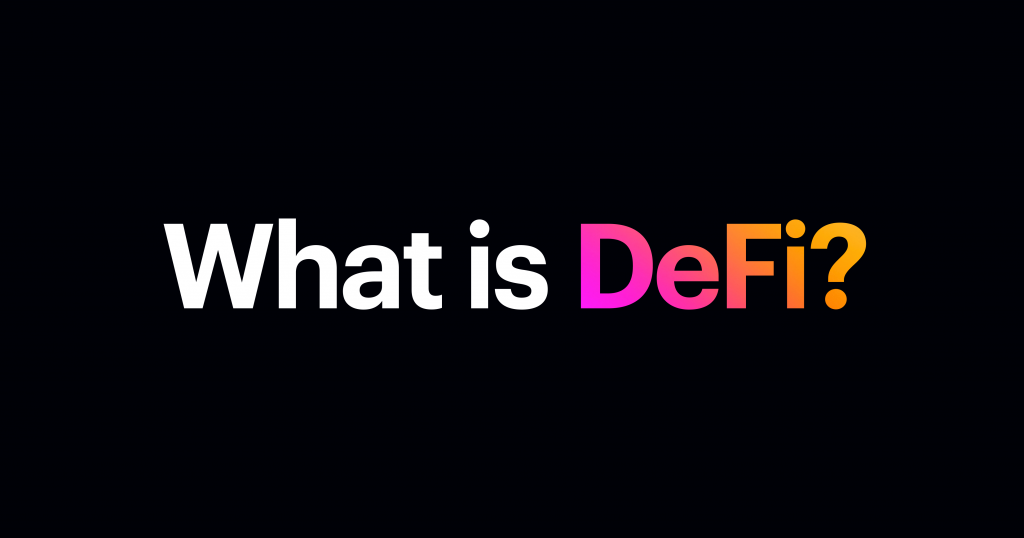
There are still many bridges between traditional finance and decentralized finance, which some Bitcoin maxis may disagree with. However, this interoperability between DeFi and CeFi is $6 billion kickstarting the blockchain industry, pushing it into new territory with the regulatory aid of centralized financial institutions. This progress has the potential to improve economies and foster the financial wellbeing of individuals across the world.
Stablecoins
Blockchain technology and other blockchain-driven systems can solve many of the issues faced by the legacy financial system.
For example, cryptocurrencies are used in several jurisdictions to circumvent harsh capital controls and as a way of retaining purchasing power. Crypto can act as a hedge against the inflation of other traditional currencies which are unstable and volatile, in particular, stablecoins.
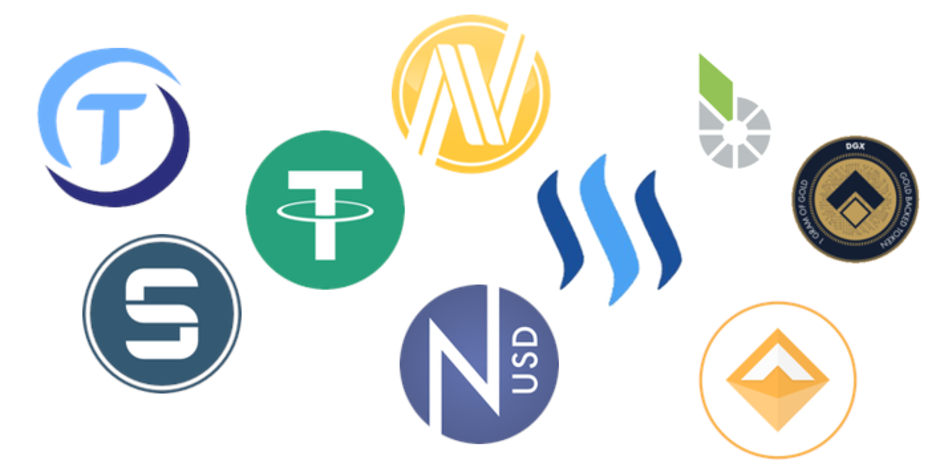
Despite the position of the U.S dollar as a world reserve currency coming into question, the fact remains that people and businesses across the world turn to the dollar for stability in the face of economic uncertainty.
Many of the leading stablecoins are under constant strain from regulatory pressure, audits, and algorithmic failure. Several influential figures have warned against holding stablecoins for fear that they might collapse or be taken down. With tighter regulation though, stablecoins could play a crucial role in bridging the traditional financial system with the various blockchain ecosystems.
A highly regulated and cryptographically secured version of the U.S dollar operating on the blockchain means that the currency can operate in a trustless way. All transactions are mathematically verified on the blockchain, meaning the supply cannot be artificially inflated or manipulated behind closed doors.
Stablecoins could also play a crucial role in blockchain insurance platforms, which could heavily disrupt the traditional insurance sector.
Staking stablecoins often comes with a higher annual percentage yield than staking Bitcoin or Ethereum, with the additional benefit of price stability and an accurate, forecastable passive income. Not only is this less risky than staking other cryptocurrencies, but staking stablecoins raises the bar for traditional financial services at a time when many savers are experiencing the sting of negative interest rates from high street banks.
Looking for anything else blockchain-related? Well, there’s a course for that! Join over 20,000 students already enrolled in Ivan on Tech Academy learning about blockchain and crypto. Furthermore, right now you can get 20% off when you enroll in Ivan on Tech Academy, using the exclusive discount code BLOG20.
Universal Basic Income
Universal basic income has become a hot topic this year, with so many people out of work, UBI could support the people and the economy, as nations consider the best way to move forward beyond the pandemic. Andrew Yang spearheaded a movement in the U.S that would provide all citizens with a stable income, gaining traction across all political parties.
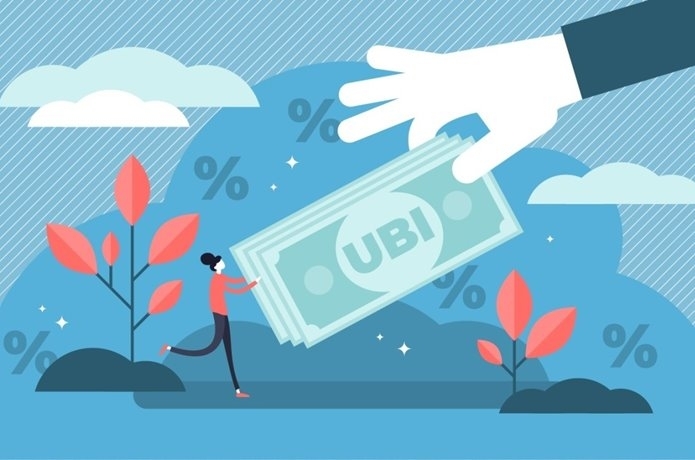
Without getting too political, there are some benefits of UBI when it comes to wellbeing and quality of life. However, this could be counterproductive for the long term productivity in most current working environments.
What About UNIversal Basic Income?
Uniswap, the largest platform and gas spender running on Ethereum, recently distributed 185,000 UNI tokens to users of the decentralized exchange to anyone that used the platform prior to September this year. Users have been able to claim up to 400 UNI tokens as a form of “equity” for their participation with the protocol.
As observed by David Hoffman for Bankless, the retrospective UNI airdrop exceeded the COVID-19 relief packages issued in the US, with a dollar value of $1,200 distributed per Ethereum address. This was calculated using a UNI value of $3, the UNI token price at the time of writing is now $4.82, hitting an all-time high of almost $8 last week.

This was not UBI, but a distribution of ownership to users with skin in the game, with the earliest users being rewarded the most. The Uniswap protocol and token distribution model presented a new paradigm for wealth creation and distribution, without which, we could see a widening social divide and class conflict.
Many people are searching for new ways to generate wealth, redefining a traditional concept of labor. By participating in the Uniswap protocol, labor is not only rewarded with money, but also with equity.
Akon City
Global superstar artist Akon is moving forward with plans to construct a $6 billion dollar crypto-powered smart city in his home country of Senegal.
The vision for Akon City is a perfect example of how cryptocurrency can be used to create an infrastructure that fosters innovation, economic stability, and the opportunity for individuals and businesses to progress.

Akon City meets the needs of a thriving community of developers in Africa, with dedicated districts for business, education, housing, technology, healthcare, entertainment, and media. The Smart City will utilize blockchain technology and IoT devices to improve both public and private sector efficiency, which will extend to the broader Senegal region.
The native currency of this smart city is Akoin. Akoin is powered by markets, tools, and services that drive Akon City. At least in theory, Akoin provides currency stability that is absent in many parts of the continent, providing an even playing field for business, artists, scientists, and citizens to gain empowerment with the utility of a crypto-based economy, transforming the lives of millions of people.
The $6 billion super-city is inspired by the city “Wakanda” from the hit Marvel movie Black Panther, and the vision for the project is designed to enable Africans to achieve economic parity. With huge investments and construction contracts confirmed, this eco-friendly, self-sustainable city could be a catalyst for a global resourced-based crypto economy.
Africa is pushing for crypto adoption. As can be seen in parts of Asia, cryptocurrency adoption is helping to bootstrap emerging economies in disadvantaged geographies. Can crypto end world poverty? Perhaps, with censorship-resistant and near-instant payments on the blockchain currently changing the lives of many people across the globe.
Can Crypto Banks Disrupt The Traditional Finance Industry?
Cryptocurrency provides a path to financial freedom by removing intermediaries from transactions and offering incentives for decentralized wealth creation.
Many people believe that crypto could effectively kill the banks. With negative interest rates and continued stimulus for greedy bankers, it makes perfect sense that people are flocking to cryptocurrencies. Even if you don’t want to speculate on volatile assets, you can earn a substantial return from staking stablecoins using various DeFi platforms.
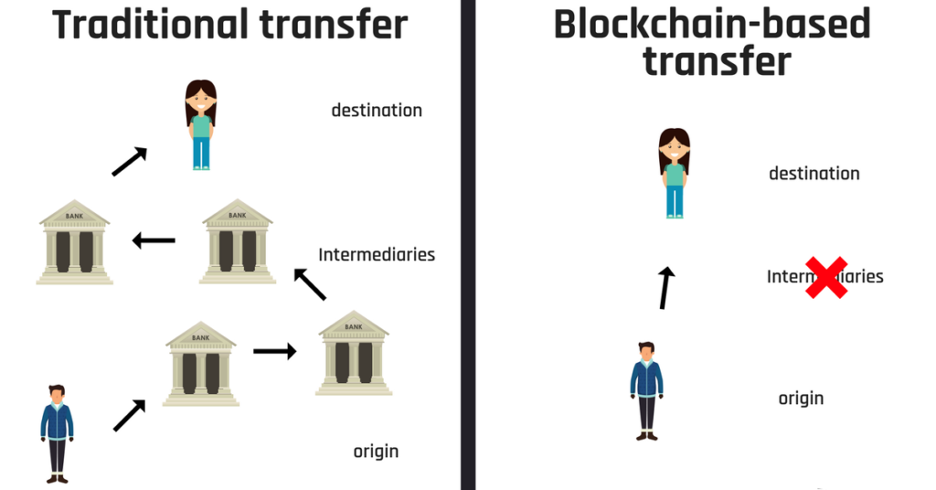
While Bitcoin is considered to be a safe-haven asset and a store of value, transacting with non-price pegged cryptocurrencies presents several obstacles when the price of an asset fluctuates dramatically. Though this may not be as severe as the hyperinflation experienced by collapsing economies, it poses an unnecessary risk for those who simply need to send or receive money.
This problem is amplified when it comes to decentralized finance (DeFi). The risks associated with DeFi make it difficult to pitch to the general public, however, several crypto services are beginning to emerge offering custodial solutions to decentralized financial applications, opening the door for the less tech-savvy individual to participate in lending, borrowing, and staking on the blockchain. There is a community push for the adoption of blockchain technology towards demographics with little previous exposure to cryptocurrency.
Can Crypto End World Poverty: Conclusion
Crypto is everywhere. You can find it in healthcare, gaming, enterprise, supply chain management, and even insurance. Check out our Top Crypto Trends article to find out exactly how crypto is changing so many parts of our daily lives!
Cryptocurrencies are at the cutting edge of financial inclusion, bridging the divide between the traditional finance sector and the blockchain industry. The convergence of technological innovation and financial education provides a site for cryptocurrencies to be used in a way that is safer and more user friendly to transact with while being more transparent, efficient, and forward-thinking than current traditional financial instruments.
Can crypto end world poverty? Well, it can certainly play a huge role in making access to financial services possible to people that otherwise would be at a disadvantage. Crypto not only changes how we transact with one another, but it is also changing how we perceive value in goods, services, and time.
With blockchain laying the groundwork for new borderless currencies, economic equality can be achieved with far more ease than ever before. What was once a pipe dream, blockchain adoption is now a reality, for small community members to institutional investors.
Moreover, interoperability between blockchains, DeFi, and CeFi is bigger than ever before. This cooperative approach means that cryptocurrency adoption can be accelerated to change the financial system for the better, giving access to financial applications and services to those that need it the most.
If you want to learn more about how blockchain technology, cryptocurrencies or decentralized finance could change our financial markets, Ivan on Tech Academy is the place for you. Specifically, Ivan on Tech Academy is one of the largest sites for blockchain education, and offers countless blockchain courses specializing in different areas of blockchain technology. Start your blockchain education journey today!
